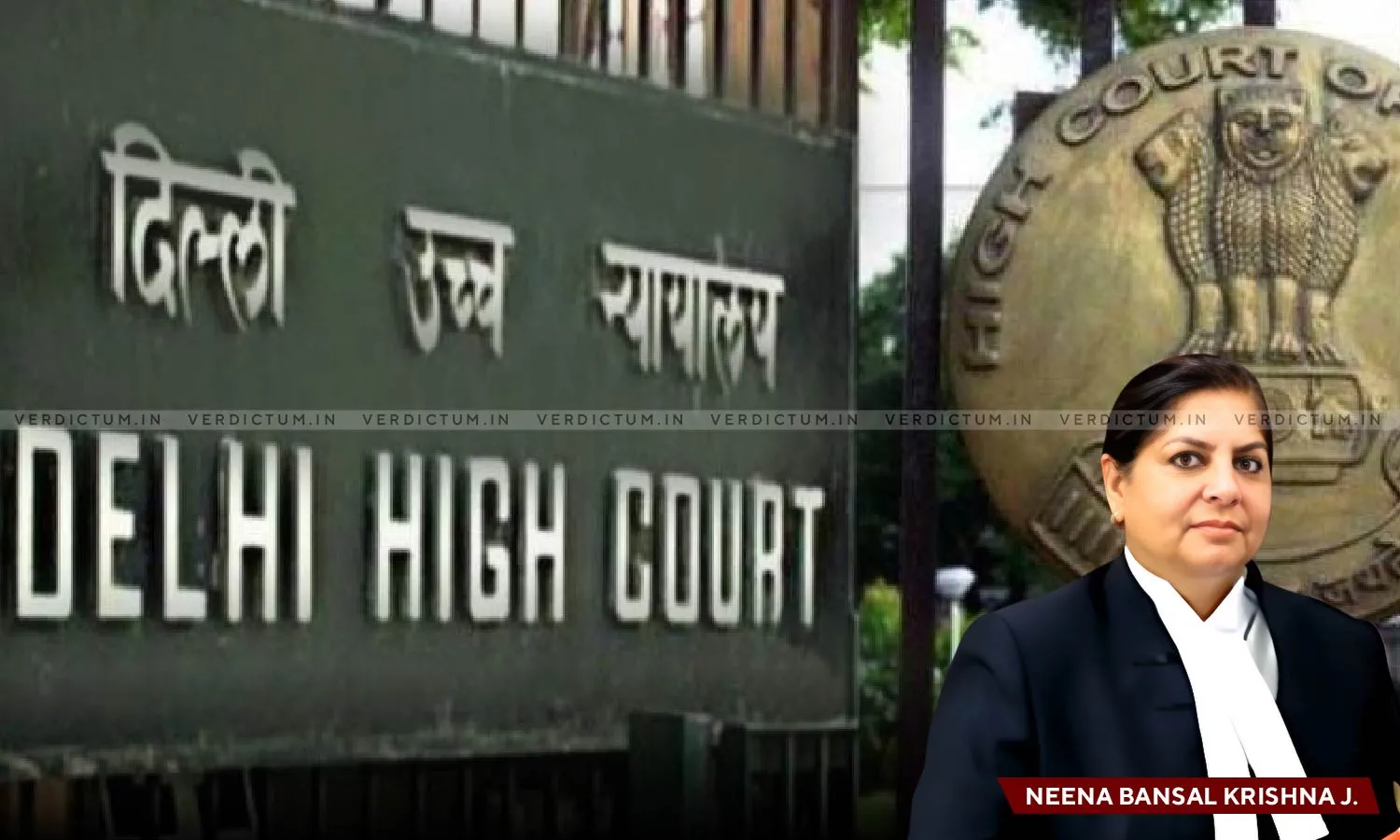Government Employee Doesn’t Have To Declare All Family Members In Service Book For Family Pension: Delhi High Court

Justice Neena Bansal Krishna, Delhi High Court
The Delhi High Court has held that a Government Employee doesn’t have to declare all family members in the service book for the grant of family pension.
The Court set aside the Order of the Civil Court which dismissed an Application under Order VII Rule 11 of the CPC by the Petitioner. The Bench clarified that even if the names of the family members of Government Servants are not mentioned in the Service Book, they can still apply for Family Pension, to which they would be entitled, if they are qualified.
A Single Bench of Justice Neena Bansal Krishna observed, “Pertinently, as per the CCS Pension Rules, the Family Pension shall be payable to the members of the family i.e. to a widow or a widower, children, dependent parents and dependents siblings, of the deceased pensioner. On satisfying the requisite qualifications on an Application filed by such person, the Family Pension is disbursable to such entitled persons. This right is not circumscribed by the declaration of the family members in the Service Book. There is no requirement under the law for the Government employee, to declare all the family members.”
Advocate N.K Kantawala represented the Petitioner, while Advocate Naushad Ahmed Khan appeared for the Respondents.
The Petitioner, employed as a Music Teacher with the Department of Education, Government of NCT of Delhi, superannuated. She had joined government service prior to her marriage. Her husband, who was also a retired government servant, filed a suit alleging that she concealed her marital status in her service record, thereby depriving him of his rights to family pension.
The suit sought directions against the Petitioner and her department for processing his family pension rights as per the Central Civil Services (Pension) Rules, 1972, and to initiate an inquiry into her alleged concealment. The Petitioner in her written statement, clarified that her marital status had been left unchanged and was corrected upon notice of complaints filed by her husband. She contended that the suit was filed solely to harass her and that family pension could only be claimed upon her demise.
The High Court explained that Rule 50 of the CCS Pension Rules, 2021 provided that when a Government servant dies, then from the date of his death, the family of the deceased shall be entitled to a Family Pension. “It is, therefore, evident from the definition itself that the right to claim Family Pension accrues only on demise of the retired Government employee and not before then,” it stated.
“In the present case, the Revisionist-wife is still alive and the cause of action for claiming Family Pension has not arisen; during her lifetime, she is the only person entitled to her pension. Moreover, there is no impediment to the Respondent-husband, to seek pension if he is qualified on the date itf and when the cause of action arises. It may also be pointed out that there is no certainty of the happening of certain event in future; whether the Plaintiff would outlive the wife, is also not known,” the Court remarked.
Consequently, the Court held, “It is, therefore, concluded that the Plaint does not disclose any cause of action and the Application under Order VII Rule 11 CPC, is hereby allowed. The impugned Order is hereby set-aside, and the Suit is rejected.”
Accordingly, the High Court allowed the Petition.
Cause Title: Kumkum Dania v. Kul Bhushan Dania & Anr. (Neutral Citation: 2024:DHC:10038)
Appearance:
Petitioner: Advocates N.K Kantawala and Amaya M Nair
Respondents: Advocates Naushad Ahmed Khan, Supriya Malik, Sumit Kumar Khatri and Parv Passi

